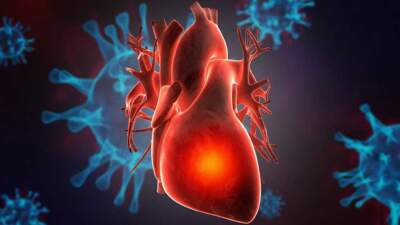In the vibrant arena of Earth’s biodiversity, one of the most enigmatic and perilous phenomena is the transmission of diseases by organisms. The perpetrators are often tiny creatures that stealthily invade our bodies, acting as transporters for deadly pathogens. One such diminutive creature is the ‘Aedes aegypti’ mosquito, the primary vector of dengue fever.
Antiviral
The Rising Threat of Human Metapneumovirus: What You Need to Know
In the realm of public health, awareness is a powerful tool. As we navigate through the complexities of the global health landscape, a new threat has emerged, catching many by surprise. This threat is the Human Metapneumovirus (HMPV), a relatively unknown virus that has seen a significant rise in cases recently.
Paxlovid (Paxzen) reduces risks of later developing long COVID
Researchers from the Veterans Health Administration find that taking the Paxlovid medication also reduce the risks of later developing long COVID, according to a new
COVID-19 infection may have lasting or delayed effects on heart
The number of people coronavirus disease 2019 (COVID-19) is rising with more cases in the U.S. (5M according to the Centers for Disease Control and
Antibiotics may increase juvenile arthritis risk in children
Antibiotic exposure could increase the risk of juvenile arthritis — Findings may offer another reason to judiciously prescribe antibiotics to children
Low cholesterol slows HIV progression
Low cholesterol in immune cells slows HIV progression – Scientists at the University of Pittsburgh have identified why some HIV-infected people experience much slower disease progression, even without medication, and it has to do with cholesterol levels in specific immune cells.
Tamiflu drug resistance in H7N9 flu cases raises concern
Tamiflu Resistance Confirmed in H7N9 Flu Cases — Drug resistance in new China bird flu raises concern – Resistance easily develops when patients take antiviral drugs such as oseltamivir (tamiflu) for treating h7n9 influenza infections. Researcher’s analysis, which includes 14 patients who were hospitalized in Shanghai within 2 days of starting therapy with Tamiflu, appears in The Lancet.
Bee venom nanoparticles may destroy HIV
Nanoparticles loaded with bee venom kill HIV
– Nanoparticles carrying a toxin found in bee venom can destroy human immunodeficiency virus (HIV) while leaving surrounding cells unharmed, researchers at Washington University School of Medicine in St. Louis have shown. The finding is an important step toward developing a vaginal gel that may prevent the spread of HIV, the virus that causes AIDS.
Anti HIV drug simulation predicts drug resistance and viral mutation
Design help for drug cocktails – Harvard researchers create a mathematical model that helps to design efficient multi-drug therapies – Pooling data from thousands of tests of the antiviral activity of more than 20 commonly used anti-HIV drugs, AIDS experts at Johns Hopkins and Harvard universities have developed what they say is the first accurate computer simulation to explain drug effects.
Genetic variations transform mild influenza to a life threatening disease
Genetics of flu susceptibility — Researchers find gene that can transform mild influenza to a life-threatening disease – Genetic variations in human body make it more susceptible to diseases. A genetic finding explains why influenza becomes a life-threating disease to some people while it has only mild effects in others.






